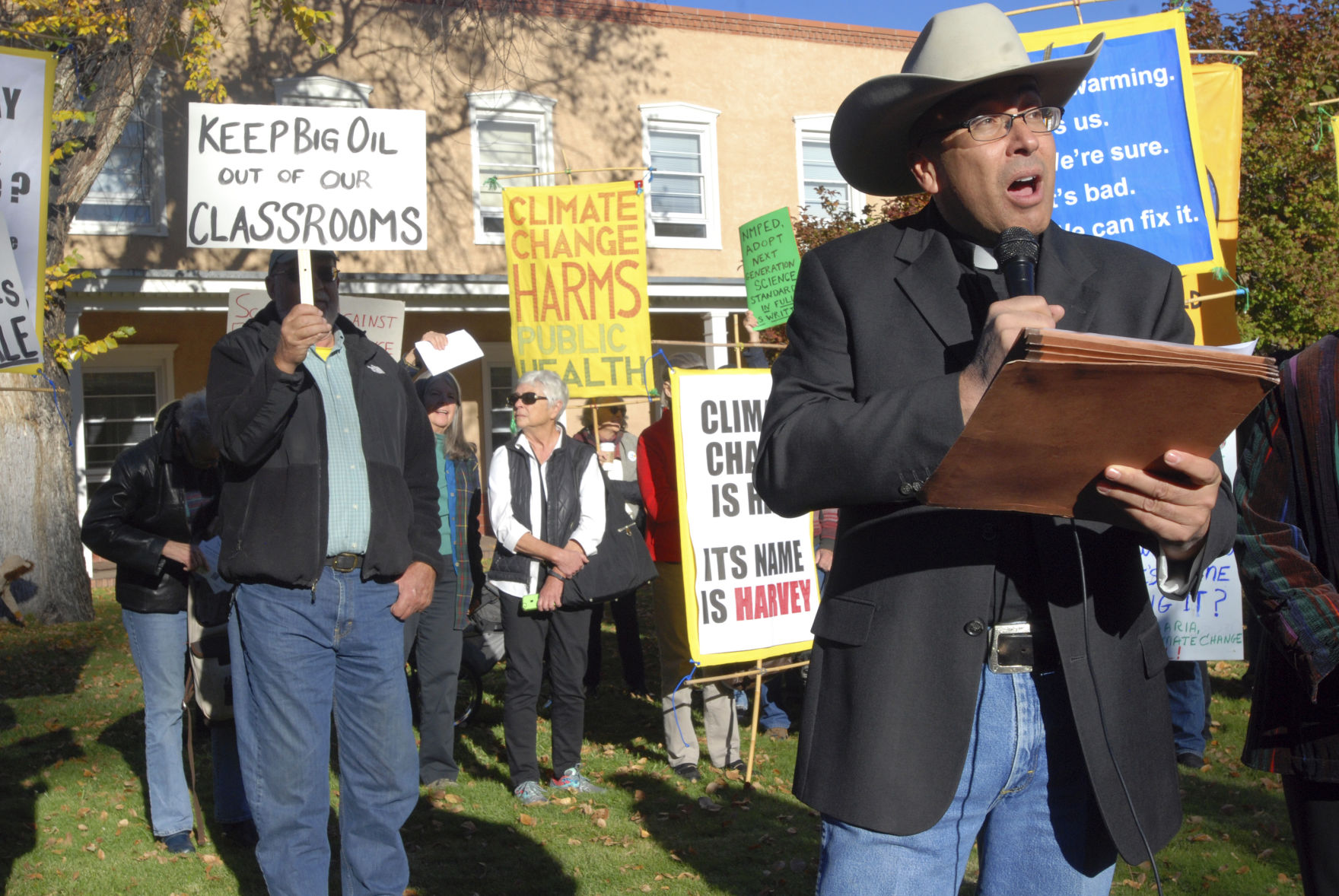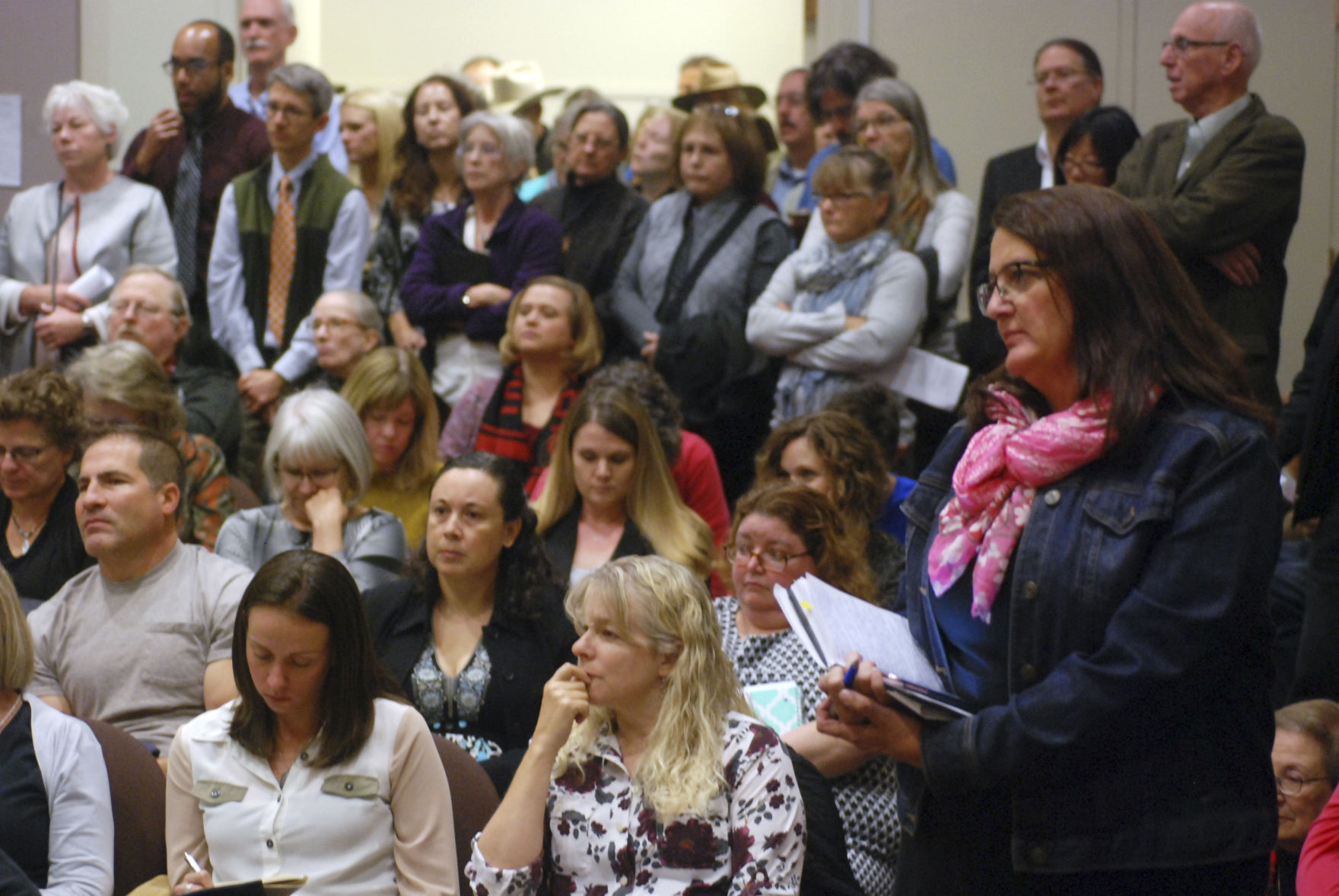SANTA FE, N.M. (AP) — New Mexico’s public education secretary said the state will adopt widely used school science standards in their entirety in response public outrage over proposed changes that omitted references to global warming, evolution and the Earth’s
SANTA FE, N.M. (AP) — New Mexico’s public education secretary said the state will adopt widely used school science standards in their entirety in response public outrage over proposed changes that omitted references to global warming, evolution and the Earth’s age.
In an interview Wednesday night, Public Education Secretary Christopher Ruszkowski said a final version of the New Mexico standards would replicate Next Generation Science Standards developed by a consortium of states, with a half-dozen added passages tied to local accomplishments in science and industry.
An earlier proposal contained about 35 New Mexico-related passages — detracting from the core mission of science education in the eyes of many critics.
A public hearing on the earlier version of standards drew scores of impassioned pleas for the state to reconsider and adopt an unedited template. The critics included leading scientists from Los Alamos National Laboratory, science teachers associations, faith leaders, as well as teachers and administrators from several New Mexico school districts.
Ruszkowski said he hoped to channel the passions from that hearing into efforts to help children live up to expectations in the new teaching guidelines.
“We as New Mexicans, as a community, are going to have to be equally fired up about how are kids are doing in terms of mastering the standards,” he said.
The final state standards will carry a distinctly New Mexican title — the New Mexico STEM-Ready Science Standards — while automatically incorporating future updates and amendments to the widely used Next Generation Science Standards.
One new component of the standards asks students to “obtain and communicate information about the role of New Mexico in nuclear science and 21st century scientific innovations, including how the national laboratories have contributed to theoretical, experimental and applied science.” Another asks students to describe the advantages and disadvantages of technologies associated with the state’s energy production.
The new standards are scheduled to take effect in July 2018. Student testing under the new guidelines would begin in 2020.




